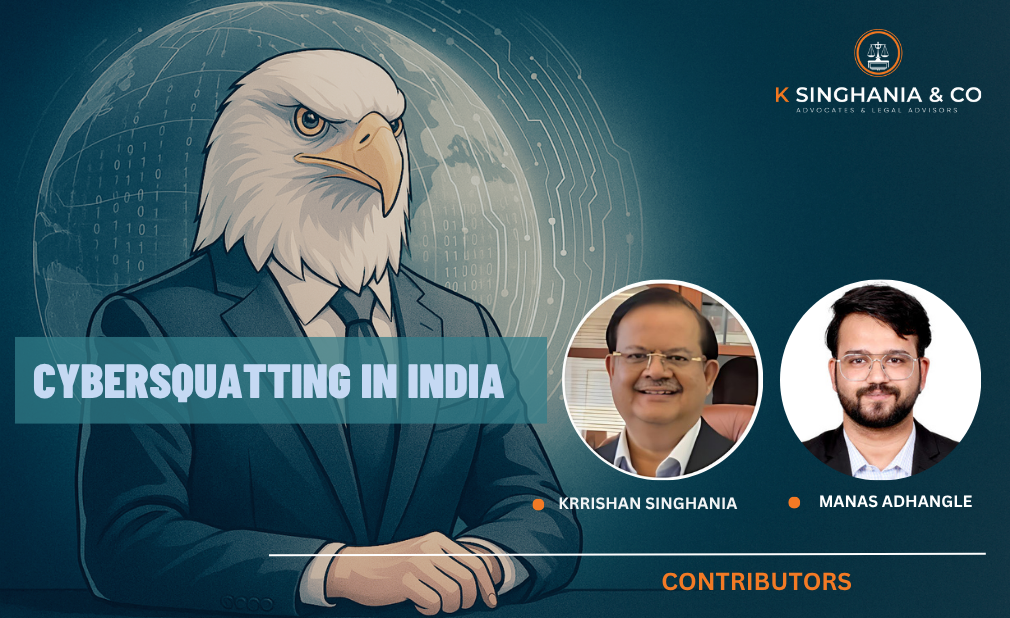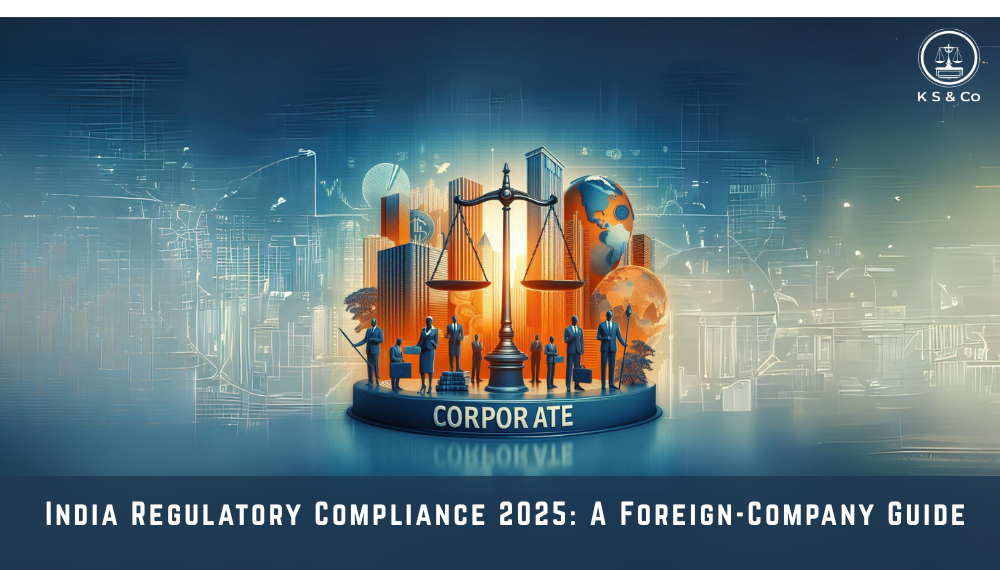Introduction
When one enters into a governmental contract, more often than not, it is a standard template with a standard dispute resolution clause, usually arbitration, with very little bargaining power or authority given to the party entering into such contract. In light of such a situation the Delhi High Court has recently pronounced a landmark decision on the interpretation of ‘dispute resolution clause’ in Government Contracts.
The Delhi High Court in Shapoorji Pallonji And Company Private Limited Vs Union Of India ARB.P. 154/2023 recently delved into the complexities of a ‘Dispute Resolution Clause’ contained in a government contract. The case involved a critical examination of the powers vested in government authorities to appoint arbitrators and the qualifications required for members of the Arbitral Tribunal. The court’s in-depth analysis explored the nuances of the clause, shedding light on key issues related to arbitration and appointment of arbitrators.
Background
The dispute arose from a government contract containing a ‘Dispute Resolution Clause’, which mandated the constitution of a three-member Arbitral Tribunal, wherein each party would nominate an arbitrator. The two nominated arbitrators would then appoint a third arbitrator to serve as the presiding arbitrator.
According to the contract, the Union of India had the right to appoint its nominee arbitrator, along with the Chief Engineer, the Additional Director General, or the Director General of the Central Public Works Department (“DGCPWD”) authorized to make the appointment. Furthermore, if either party failed to appoint the second arbitrator or the two nominated arbitrators could not agree on a presiding arbitrator, the DGCPWD would possess the authority to make the appointment.
The UOI asserted that the right to appoint its nominee arbitrator was reserved in favour of the DGCPWD. Additionally, the UOI emphasized that the Dispute Resolution Clause outlined mandatory qualifications for arbitrators, requiring them to be Graduate Engineers with experience in handling public works engineering contracts at a level not lower than Chief Engineer (Joint Secretary Level of Government of India).
The Court’s Analysis
The Delhi High Court embarked on a detailed analysis of the Dispute Resolution Clause and the legal implications of its provisions. It examined the authority vested in the CE, ADG, and DGCPWD to appoint arbitrators and whether their qualifications were compatible with the A&C Act.
The Hon’ble Court noted that none of the three authorities were eligible to act as arbitrators, considering the provisions of the Seventh Schedule of the A&C Act. Therefore, they were also deemed ineligible to nominate a second or a presiding arbitrator, as established in the Supreme Court’s decision in Perkins Eastman Architects DPC vs. HSCC (India) Ltd Arbitration Application No.32 OF 2019
Regarding the qualifications of members of the Arbitral Tribunal, the UOI argued that the word “any” should be interpreted to mean “all” members, and the clause’s language specified that the prescribed qualifications “shall be treated as a mandatory qualification to be appointed as arbitrator.”
However, the Hon’ble Court disagreed with the UOI’s interpretation. It observed that the provision, while laying down the mandatory qualification for a person “to be appointed as arbitrator,” used the expression “any member.” As such, it did not explicitly require ‘all members’ of the Arbitral Tribunal to possess the prescribed qualifications. The Hon’ble Court clarified that at least one or more members of the Arbitral Tribunal must hold the prescribed qualifications, while others need not.
Moreover, the Hon’ble Court found that the clause did not specify whether the nominated arbitrator could be drawn from departments or ministries other than those affiliated with the CPWD. To sustain the clause’s validity, the Hon’ble Court interpreted it to mean a retired government employee who held the prescribed qualifications, thus avoiding any conflict with the prohibitions contained in the Seventh Schedule of the A&C Act.
The Hon’ble Court also addressed the UOI’s contention that the petitioner had prematurely invoked arbitration without exhausting the prescribed procedure for settlement before the Dispute Redressal Committee (“DRC”). According to the Hon’ble Court, the nomination of arbitrators by both parties would arise only after the DRC concluded its proceedings upon a failure to reach a settlement.
The court established that the DRC reported a failure of conciliation on 2nd May 2023, while the petitioner nominated its arbitrator on 27th January 2023, rendering the nomination premature. Therefore, both the petitioner and the UOI could exercise their right to nominate their respective arbitrators after 2nd May 2023.
K Singhania’s Comments
The Delhi High Court’s comprehensive analysis of the Dispute Resolution Clause in the government contract sheds light on the intricacies involved in arbitration and appointment of arbitrators. By clarifying the qualifications required for members of the Arbitral Tribunal and the timing of nominating arbitrators, the Hon’ble Court has provided valuable guidance for parties engaged in government contracts. This ruling emphasizes the significance of transparency and adherence to contractual procedures in arbitration, safeguarding the integrity of dispute resolution mechanisms in government contracts.

Introduction
It is a common situation where a dispute arises between parties and the dispute resolution clause limits your options to Arbitration, HOWEVER, one of the parties may not even have the funds to comply with the Arbitration award. So, the question which arises is: Is arbitration even an effective method in those situations? This conundrum finally has an answer.
In the recent judgment of M/S Sunflag Iron & Steel Co. Ltd Vs M/S. J. Poonamchand & Sons MISC. CIVIL APPLICATION NO.374/2020 the Bombay High Court has delivered a significant ruling on the application of Sections 7(1)[i] and 238[ii] of the Insolvency and Bankruptcy Code, 2016 (“IBC”) in relation to Section 11(6)[iii] of the Arbitration and Conciliation Act, 1996 (“A&C Act”). The Hon’ble Court sheds light on the interplay between these two Acts and the scope of their respective applications in cases where disputes arise between parties to a contract, invoking the insolvency resolution process and arbitration simultaneously.
Background
The case before the Hon’ble Court involved a contentious situation between ‘Sunflag Iron & Steel Co. Ltd.’ and ‘M/s. J. Poonamchand & Sons’, arising from a contractual agreement. As per the dispute resolution clause, Sunflag exercised its right to initiate arbitration proceedings, seeking the appointment of an arbitrator under Section 11(6) of the A&C Act. However, M/s. J. Poonamchand & Sons opposed the application, contending that they had already approached the National Company Law Tribunal (“NCLT”) and filed a petition under Section 9[iv] of the IBC against Sunflag, thus, Section 11(6) of the A&C Act is not applicable due to the operation of Section 238 of the IBC.
The Legal Conundrum
The heart of the matter was the apparent conflict between the provisions of the A&C Act and the IBC. The critical issue was whether the mere filing of an application under Section 7(1) of the IBC, without any further action or order by the Adjudicating Authority, was sufficient to trigger the restrictions stipulated under Section 238 of the IBC, thereby precluding any proceedings under other statutes, including the A&C Act.
The Bombay High Court’s Elucidation
The Bombay High Court embarked on a meticulous analysis of the relevant statutory provisions to resolve the legal conundrum. The Hon’ble Court first emphasized that unlike Section 238 of the IBC, there was no provision in the A&C Act conferring an overriding effect on its provisions. Nevertheless, the Hon’ble Court recognized that the A&C Act was a specialized statute governing arbitration, which led to the repeal of all other statutes previously governing the same field, as explicitly stated in Section 85[v] of the A&C Act.
The Hon’ble Court then closely examined the sequence of events under the IBC leading to the application of Section 238. It underscored that the mere filing of a Section 7 application did not automatically indicate the Adjudicating Authority’s cognizance of the matter. The Authority had the crucial responsibility, as per Sections 7(4)[vi] and 7(5)[vii] of the IBC, to ascertain the existence of a default, record reasons for not ascertaining factors, and finally, record satisfaction that a default had indeed occurred before admitting the application.
Significantly, the Hon’ble Court established that the starting point for invoking Section 238 of the IBC was the Adjudicating Authority’s admission of the Section 7 application, accompanied by the satisfaction of default as contemplated under Section 7(5) of the IBC. Only at this juncture would Section 238’s restrictions come into effect. Therefore, before such admission and satisfaction, an application under Section 11(6) of the A&C Act could not be deemed non-maintainable, as argued by M/s. J. Poonamchand & Sons.
The court cogently pointed out that Section 7(5)(b) of the IBC empowered the Adjudicating Authority to reject an application if it found that no default had occurred. This provision clearly indicated that the mere filing of an application under Section 7(1) of the IBC did not bar proceedings under other statutes, until and unless the satisfaction criteria laid out in Section 7(4) read with Section 7(5)(a) were met, and the application was admitted.
K Singhania’s Comments
In our opinion, the Bombay High Court’s ruling significantly clarifies the interplay between the IBC and the A&C Act and was long due. It beautifully balances the two rights under law as it establishes that the mere filing of an application under Section 7(1) of the IBC is insufficient to trigger the restrictions enshrined in Section 238 of the IBC, thus, giving the party a choice to go to arbitration, however, still keeping the option of IBC open, however, with a higher threshold of admission and maintainability.
The judgment also creates a clear demarcation of the stages when the provisions of Section 238 of the IBC come into effect, assuring legal practitioners, litigants, and stakeholders that the statutory framework governing insolvency resolution and arbitration operates harmoniously. This ruling not only enhances legal certainty but also upholds the principles of justice and fairness, ensuring the protection of the parties’ rights under both the IBC and the A&C Act.
[i] Section 7(1): “A financial creditor either by itself or jointly with [other financial creditors, or any other person on behalf of the financial creditor, as may be notified by the Central Government,] may file an application for initiating corporate insolvency resolution process against a corporate debtor before the Adjudicating Authority when a default has occurred.”
[ii] Section 238: “The provisions of this Code shall have effect, notwithstanding anything inconsistent therewith contained in any other law for the time being in force or any instrument having effect by virtue of any such law.”
[iii] Section 11(6): “Appointment of Arbitrators: (6) Where, under an appointment procedure agreed upon by the parties, — (a) a party fails to act as required under that procedure; or (b) the parties, or the two appointed arbitrators, fail to reach an agreement expected of them under that procedure; or (c) a person, including an institution, fails to perform any function entrusted to him or it under that procedure…”
[iv] Section 9: “Application for initiation of corporate insolvency resolution process by operational creditor…”
[v] Section 85: “(1) The Arbitration (Protocol and Convention) Act, 1937 (6 of 1937), the Arbitration Act, 1940 (10 of 1940) and the Foreign Awards (Recognition and Enforcement) Act, 1961 (45 of 1961) are hereby repealed. (2) Notwithstanding such repeal,— (a) the provisions of the said enactments shall apply in relation to arbitral proceedings which commenced before this Act came into force unless otherwise agreed by the parties but this Act shall apply in relation to arbitral proceedings which commenced on or after this Act comes into force; (b) all rules made and notifications published, under the said enactments shall, to the extent to which they are not repugnant to this Act, be deemed respectively to have been made or issued under this Act.”
[vi] Section 7(4): “The Adjudicating Authority shall, within fourteen days of the receipt of the application under sub-section (2), ascertain the existence of a default from the records of an information utility or on the basis of other evidence furnished by the financial creditor under sub-section (3).”
[vii] Section 7(5): “Where the Adjudicating Authority is satisfied that– (a) a default has occurred and the application under sub-section (2) is complete, and there is no disciplinary proceedings pending against the proposed resolution professional, it may, by order, admit such application; or (b) default has not occurred or the application under sub-section (2) is incomplete or any disciplinary proceeding is pending against the proposed resolution professional, it may, by order, reject such application: Provided that the Adjudicating Authority shall, before rejecting the application under clause (b) of sub-section (5), give a notice to the applicant to rectify the defect in his application within seven days of receipt of such notice from the Adjudicating Authority.
Introduction
In a recent ruling of Tomorrow Sales Agency Private Limited Vs Sbs Holdings, Inc. And Ors. CM No. 14793/2023 & 14794/2023 the Delhi High Court has discussed the rights and liabilities of third-party funders in cross-border arbitration proceedings. The Hon’ble Court’s comprehensive analysis of Sections 234[i] and 238[ii] of IBC in conjunction with the United Nations Commission on International Trade Law (UNCITRAL) Model Law on Cross-Border Insolvency, has established a crucial precedent that safeguards the interests of third-party funders, who are non-signatories to an arbitration agreement.
Background
The case before the Hon’ble Court involved a complex cross-border insolvency matter where an Indian corporate debtor was the subject of arbitration proceedings encompassing multiple jurisdictions. Foreign creditors sought recognition of the Indian insolvency proceedings under the UNCITRAL Model Law to protect their interests in the debtor’s assets.
The Legal Conundrum
The pivotal question before the Hon’ble Court was whether third-party funders, who had supported a party in the arbitral proceedings but were non-signatories to the arbitration agreement, could they be held liable to pay the awarded amount merely based on their funding involvement. Additionally, the Hon’ble Court needed to address whether the application of Section 238 of the IBC, which stipulates the Code’s provisions take precedence over anything inconsistent in other laws, could unfairly expose third-party funders to unforeseen liabilities.
Preserving Third-Party Funder Protections
In this judgement, the Delhi High Court explored the interplay of Sections 234 and 238 of the Code to address the legal conundrum. The court astutely emphasized that recognition of foreign insolvency proceedings under Section 234 was essential to fostering international cooperation. It aimed to achieve a harmonious and uniform approach to managing the debtor’s assets and distributing them equitably among creditors, regardless of their geographical location.
The Hon’ble Court, however, noted that Section 238’s application should not lead to an unjust outcome for third-party funders who had not expressly accepted the risk of liability. The Hon’ble Court was steadfast in its stance that enforcement of an arbitral award against a non-party who had not consented to such exposure was neither desirable nor permissible.
In recognition of the invaluable role played by third-party funders in ensuring access to justice, the Hon’ble Court underscored that without such funding support, individuals with valid claims might be financially unable to pursue rightful recovery of legitimately due amounts. Often, claimants become impecunious due to the very circumstances for which they seek redressal. Given the substantial costs associated with arbitration, it is crucial to have third-party funding available as an option for impecunious parties.
Moreover, the Hon’ble Court deemed it essential for third-party funders to have full awareness of their potential exposure to liabilities. The Hon’ble Court upheld the principle that third-party funders could not be unfairly burdened with liabilities that they had neither undertaken nor were aware of. Any uncertainty in this regard would create a chilling effect, deterring third-party funders from providing crucial funding support for litigation.
The Case in Focus
The Hon’ble Court’s pronouncement came during an appeal filed against the Single Judge’s order in a petition under Section 9[iii] of the A&C Act, where the award holder sought interim measures to enforce the Arbitral Award.
The Single Judge had held that the third-party funder, Tomorrow Sales Agency Private Limited (“TSA”), who had financed the claimants to pursue the arbitral proceedings, was liable to pay the costs imposed on the claimants by the Arbitral Tribunal after their unsuccessful outcome.
However, the Division Bench of the Delhi High Court strongly disagreed with the Single Judge’s view. The court concluded that TSA, being a third-party funder, was not a party to the Arbitral Award and, therefore, could not be treated as a judgment-debtor. As a non-party to the arbitration proceedings, TSA could not be held accountable for the award’s enforcement under Section 36(1)[iv] of the A&C Act.
The Hon’ble Court’s ruling was firmly rooted in the understanding that an arbitral award could only bind parties who had been compelled to arbitrate and was actively involved in the arbitration proceedings. A non-signatory to the arbitration agreement, who was neither compelled to arbitrate nor joined as a party to the arbitral proceedings, could not be held responsible for the award’s enforcement.
Importantly, the Hon’ble Court observed that TSA’s involvement in funding the claimants’ arbitration proceedings was transparent and disclosed. SBS, the award holder, had neither attempted to include TSA as a party to the arbitration proceedings nor sought any order against TSA before the arbitral tribunal.
Furthermore, the court highlighted that TSA had no obligation to pay the awarded amount, as the Arbitral Tribunal had explicitly ordered costs against the claimants and not against TSA. Moreover, TSA’s funding agreement, the ‘Bespoke Funding Agreement’, did not impose any obligation on TSA to bear the expenses of an adverse award.
In its observations, the Hon’ble Court also acknowledged that no procedural rules in the Delhi High Court contemplated cost recovery from third parties who were not parties to the suit or action. The court emphasized that third parties could only be implicated in determining costs if a substantive action against them was instituted and tried separately.
K Singhania’s Comments
In our opinion, the Delhi High Court’s seminal ruling is a watershed moment in preserving the rights and protections of third-party funders in cross-border arbitration proceedings. The Hon’ble Court has set a strong precedent for future cases involving third-party funding.
This judgment reinforces the sanctity of arbitration agreements and the significance of transparent and informed third-party funding. It safeguards the role of third-party funders in ensuring access to justice and promoting international cooperation in cross-border insolvency cases as well as protects and limits their interest. This will also ensure more funders invest in arbitration in India and more Indian’s will be able to choose arbitration as an option without much hesitation with funding.
The Hon’ble Court’s enlightened approach not only establishes India’s adherence to international best practices but also showcases the judiciary’s astute understanding of the intricacies involved in cross-border arbitration. This ruling will undoubtedly bolster India’s standing as an arbitration-friendly jurisdiction and bolster its appeal for foreign investors seeking fair and just resolution of cross-border disputes.
This ruling reinforces India’s commitment to international cooperation and adherence to the UNCITRAL Model Law, signalling its willingness to foster a robust cross-border arbitration. It sends a clear message to foreign investors that India remains a jurisdiction that prioritizes fairness, transparency, and the protection of creditors’ rights in cross-border arbitration proceedings.
[i] Section 234: “(1) The Central Government may enter into an agreement with the Government of any country outside India for enforcing the provisions of this Code. (2) The Central Government may, by notification in the Official Gazette, direct that the application of provisions of this Code in relation to assets or property of corporate debtor or debtor, including a personal guarantor of a corporate debtor, as the case may be, situated at any place in a country outside India with which reciprocal arrangements have been made, shall be subject to such conditions as may be specified.”
[ii] Section 238: “The provisions of this Code shall have effect, notwithstanding anything inconsistent therewith contained in any other law for the time being in force or any instrument having effect by virtue of any such law.”
[iii] Section 9: “[(1)] A party may, before or during arbitral proceedings or at any time after the making of the arbitral award but before it is enforced in accordance with section 36, apply to a court…”
[iv] Section 36(1): “Enforcement–(1) Where the time for making an application to set aside the arbitral award under section 34 has expired, then, subject to the provisions of sub-section (2), such award shall be enforced in accordance with the provisions of the Code of Civil Procedure, 1908 (5 of 1908), in the same manner as if it were a decree of the court.”







